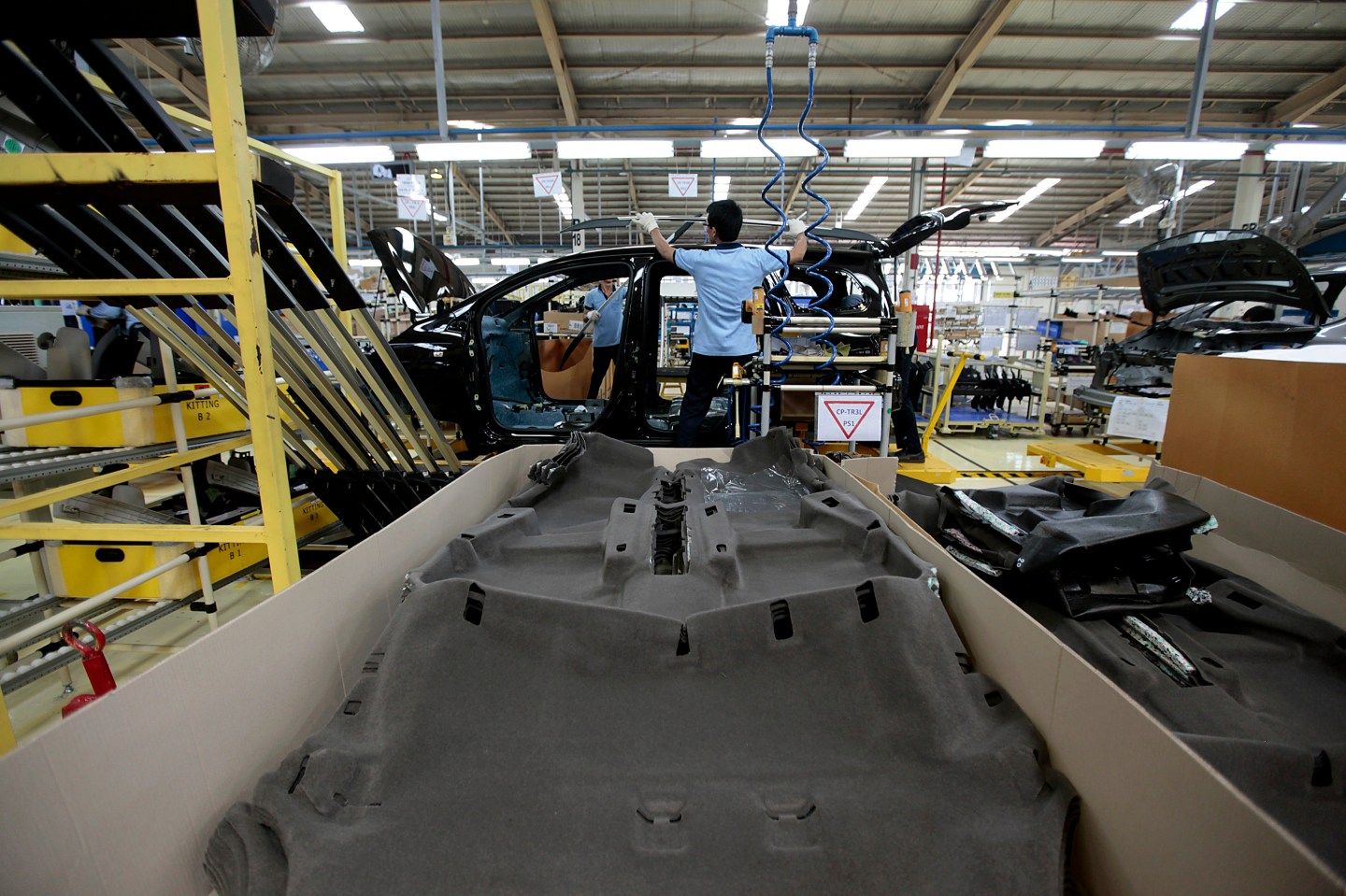A day after announcing it is to stop making GM-branded cars in Indonesia, General Motors (GM) said Friday it would cease production of its Chevrolet Sonic in Thailand by the middle of this year.
While GM will still sell cars like the Cruze sedan in parts of Southeast Asia, an emerging markets battleground for global automakers, it is shifting focus to push the ‘American heritage’ of its SUVs and pickups such as the Trailblazer and Colorado.
The restructuring – under Executive Vice President Stefan Jacoby, who oversees markets beyond the Americas, Europe and China – marks a retrenchment in Asia by the U.S. Automaker. While business grows in China, the world’s biggest autos market, GM has struggled in other parts of its international operations unit, which doesn’t include China.
The Detroit-based automaker has signalled overall restructuring charges of about $700 million this year, and said last month it expected an improved consolidated operating performance from Jacoby’s International Operations unit.
GM’s Thai plant in Rayong, an industrial city southeast of Bangkok, will be scaled down from current annual capacity of 180,000 vehicles. The company did not elaborate, but said it would initiate a “voluntary separation program” for staff. In total, GM employs around 3,200 people in Thailand.
In Indonesia, GM said on Thursday it would cease production of the Chevrolet Spin by end-June and shutter a factory at Bekasi, just outside Jakarta, which employs around 500 people.
After eight decades in Indonesia, GM’s market share is below 1%, according to LMC Automotive. It sold fewer than 11,000 vehicles there last year, while Toyota Motor (TOYOF) and its Daihatsu (DHTMF) affiliate shifted more than 578,000 vehicles. Toyota and other Japanese makers together control more than 90% of the Indonesian market.
Jacoby acknowledged GM got it wrong in going head-to-head with the Japanese in a market he dubs their “backyard”. The Spin, a strategic, small “people mover” van that has done well in Brazil, was too costly to make to be profitable in Indonesia as most of the parts had to be imported.
“We could not ramp up Spin production to boost the volume as we had expected … although the product was really good,” Jacoby told Reuters. “The logistics chain of the Spin was too complex; we had low volume so we could not localize the car accordingly, and from the cost point of view we were just not competitive.”
In Thailand, GM sold close to 26,000 vehicles last year, giving it 3% market share, according to LMC Automotive, which puts the combined market share of major Japanese rivals at more than 60%. GM said it will phase out sales of the Spin and the Sonic in Thailand by June.
While GM is broadly repositioning the Chevrolet brand in parts of Southeast Asia, it is driving into Indonesia with its Chinese partners, including SAIC Motor Corp. They plan to set up a manufacturing facility near Jakarta for their no-frills Wuling brand, but aren’t interested in taking over GM’s Bekasi plant, a person close to the joint venture said.
The overhaul in Indonesia and Thailand follows GM’s 2013 retreat from car production in Australia, and industry analysts now expect GM to restructure its manufacturing operations in South Korea, a big production hub for the U.S. Firm.
Susquehanna Financial Group analyst Matthew Stover said South Korea has shifted from a developing-market cost structure over the last decade to being almost as expensive for car production as Japan.
“I don’t think what’s happening in Korea is even close to (being) done. It’s the biggest problem,” Stover said.
Watch more business news from Coins2Day:












